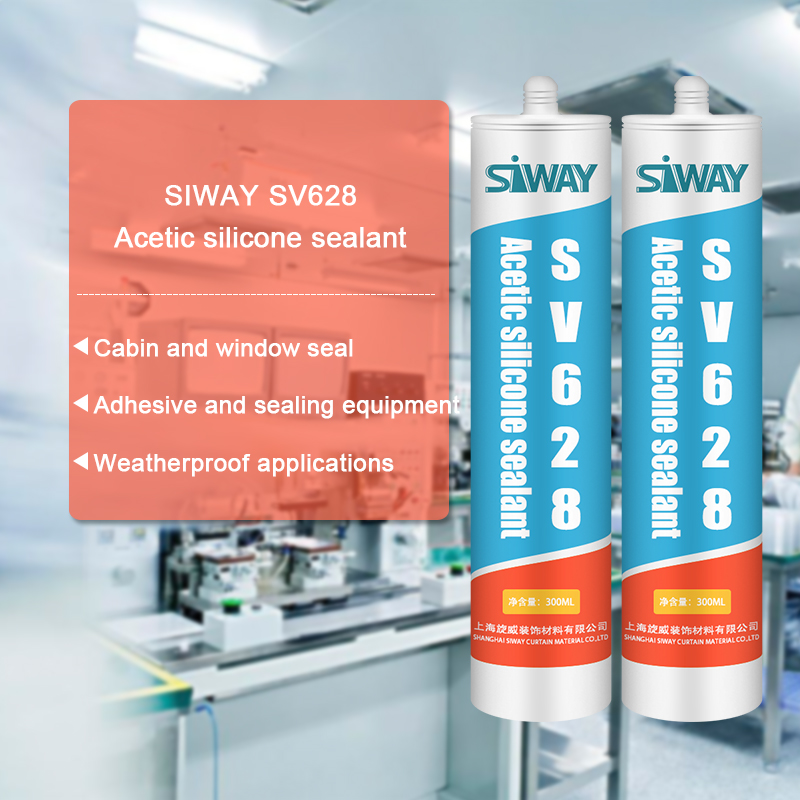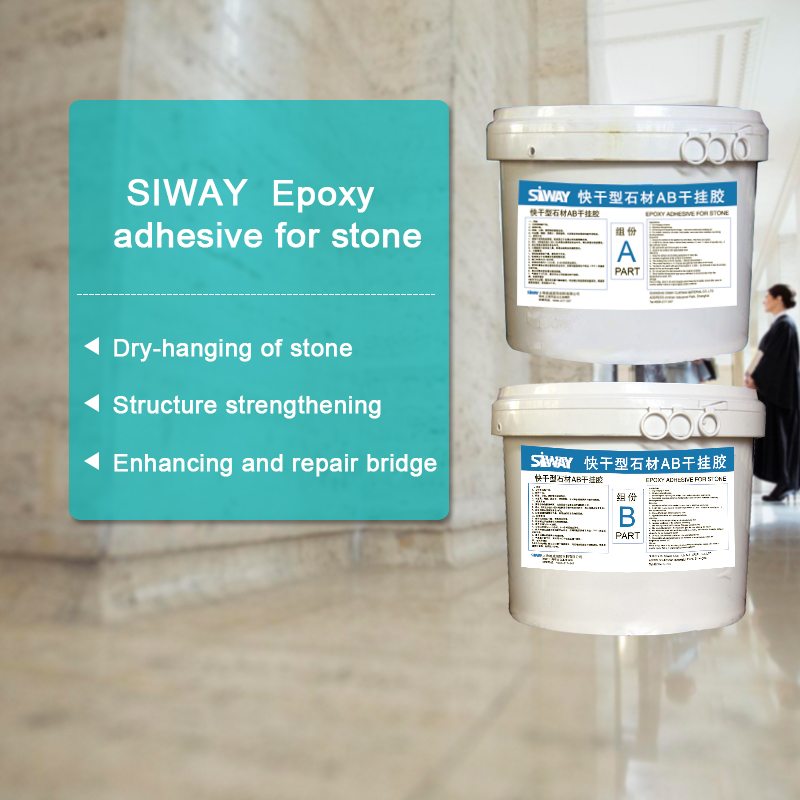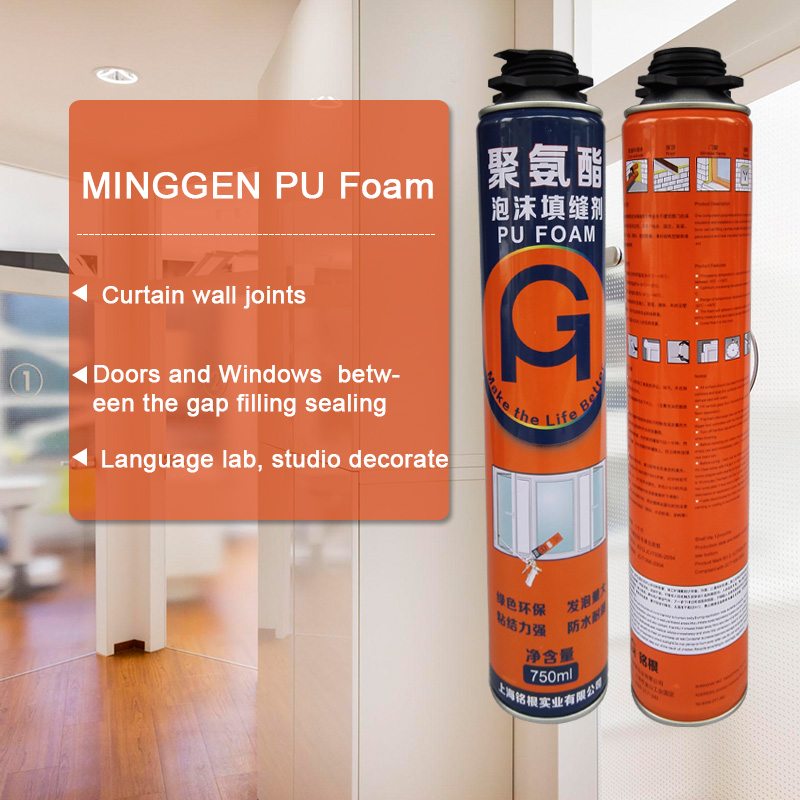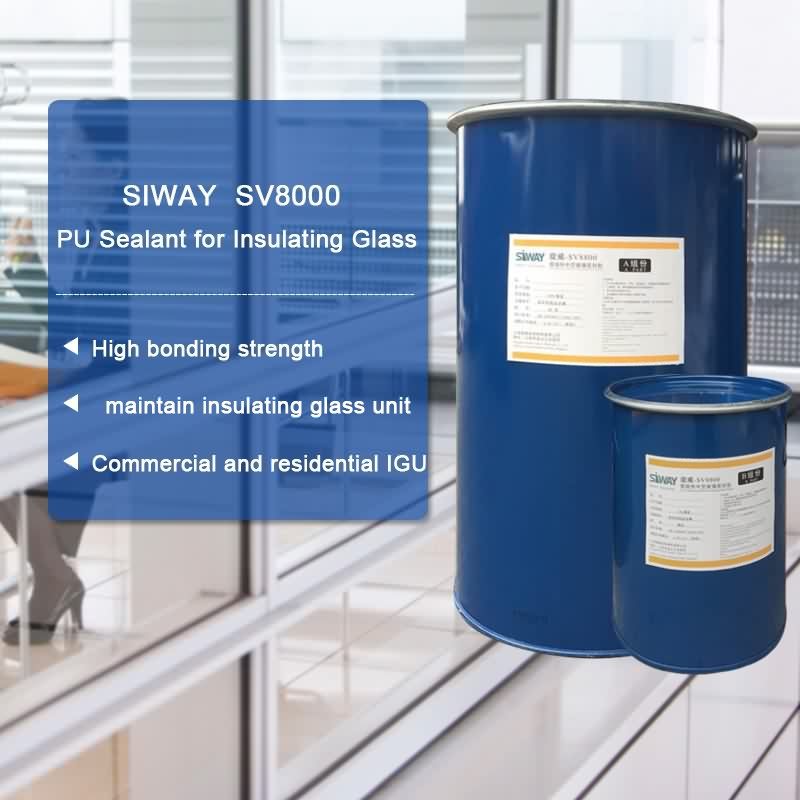Good Quality for SV-628 Acetic Silicone Sealant for Honduras Manufacturer
Short Description:
Description It is one- component, moisture curing acetic silicone sealant. It cures fast to form a permanently flexible, waterproof and weather resistant silicone rubber. Where to use Widely used in construction, glass assembling and home decoration.SV-628 has good adhesion to most common building materials e.g. glass, ceramic, tile, wood and fiber glass. Key Features 1. 100% silicone 2. Easy to apply 3. Excellent elasticity 4. Excellent adhesion to most common building materials ...
We strive for excellence, service the customers", hopes to become the best cooperation team and dominator enterprise for personnel, suppliers and customers, realizes value share and continuous promotion for Good Quality for SV-628 Acetic Silicone Sealant for Honduras Manufacturer, Looking to the future, a long way to go, constantly striving to become the all staff with full enthusiasm, one hundred times the confidence and put our company built a beautiful environment, advanced products, quality first-class modern enterprise and work hard!
Description
It is one- component, moisture curing acetic silicone sealant. It cures fast to form a permanently flexible, waterproof and weather resistant silicone rubber.
Where to use
Widely used in construction, glass assembling and home decoration.SV-628 has good adhesion to most common building materials e.g. glass, ceramic, tile, wood and fiber glass.
Key Features
1. 100% silicone
2. Easy to apply
3. Excellent elasticity
4. Excellent adhesion to most common building materials
5. Outstanding weatherproofing capability
6. Fast Curing
Basic Application
1.All kinds of glass curtain wall weatherproof seal
2.For metal (aluminum) curtain wall, enamel curtain wall weatherproof seal
3.Joint sealing of concrete and metal
4.Roof joint seal
Technical data sheet
Technical data sheet for reference,
| Test standard | 1000 | |
| Appearance | ISO 11600 | Have no grain, no agglomerations |
| Extrudability,g/ml | ISO 8394 | 450 |
| Tack Free Time,min | ASTM C 679 | 20 |
| Density,g/cm3 | ISO 1183 | 1.0 |
| Slump,mm | ISO 7390 | 0 |
| Heat weight loss,% | ISO 10563 | 7 |
| Ultimate Tensile Strength,MPa | ISO 8339 | 0.4 |
| Ultimate Elongation,% | ISO 8339 | 150 |
| Ultimate Shear Strength, MPa | ISO 4587 | N/A |
Certification
JC/T881-2001 20LM; GB/T14683-2003 20LM.
Color
clear, black, silvery gray, white, brown
Package
300ml in cartridge * 24 per box, 590ml in sausage *20 per box
Shelf life
12 months
Note
If you want the TDS or MSDS or other details, please contact with our sales person.
Check out our blog for clickable links to the items below!
Blog- https://www.heywandererblog.com/2017/06/diy-stock-tank-pool-everything-you-need.html
Instagram- www.instagram.com/heywanderer
E-mail- heywanderer@gmail.com
Things you will need:
- Stock tank (size of your choosing- ours is 8 ft.)
- Above Ground Pool Pump
- Weatherproof Silicone Sealant
- Hole Saw with Arbor
- Plunger Valves
- Pool Outlet
- 1-3 Rubber Washers (or Gaskets)
- 1 Strainer Nut
Other things you will need for maintenance:
- Chlorine Tablets
- Floating Pool Dispenser
- Water Testing Kit
Step 1- Find a nice level area to lay the stock tank on. If the area where you have chosen isn’t level, use sand or rocks to build up whatever side needs it. It is very important that your stock tank be level so there aren’t any unexpected leaks.
Step 2- Cut holes in your stock tank. I’m not going to lie- this is a pain in the butt. We bought a hole saw with an arbor and it took two people to get through the metal. You will need two holes, one at the top and one at the bottom. In an above ground pool, these aren’t usually right on top of each other, but ours are. We haven’t ever seen this as a problem.
Step 3- Start assembling the parts. In the pool pump package there is a packet with instructions, warnings and troubleshooting. This packet proved to be vital in the setup of the pool. I did end up getting 2 gaskets for the bottom section (the drain section), one for the inside of the pool and one for the outside. It only says you need one for the inside, but this was causing a drip for us. I also put thread seal tape around the connections that were closest to the pool. There are a lot of connections, and each one has a gasket, so you could probably get away without the tape. I didn’t put it on all the connections, the only ones that really seemed to matter were the ones that are connecting the hoses to the pool.
Step 4- Apply silicone waterproof sealant around all crevices involving the input and output parts. I did this on the inside of the pool and the outside. And I applied it VERY HEAVILY and did two layers, allowing one to dry before the second was applied. Sealing these crevices is one of the most important parts. This is what is going to keep the water in the pool. Well all of these steps are leading up to keeping water in the pool, but if there is any chance that it’s going to be getting out, this is what will save you.
Step 5- Test for leaks. Before I added water to the pool, I took a water bottle and poured a good amount of water on the input and output parts. You could also just use a water hose. I would make sure the hose wasn’t on full blast. You don’t want to accidentally penetrate the sealant.
Step 6- Once you are sure there aren’t any leaks, fill the pool just above the bottom hole/output. Check again to see if any leaks have started. If there aren’t any, fill the rest of the pool up!
Step 7- Turn the pump on. Make sure both plunger valves are open/unlocked. When you first do this water may not come out of the output, but there is a solution! Twist off the knob on top of the filter pump to let some air out. Some water may escape too and that’s okay, just be ready to screw it back on as soon as the water starts coming out.
Our new back tape roller for LED strip, ensuring every back tape is stuck neat and tight, as opposed to hand-made process, which makes the tape uneven and non-consistent and which costs much more time.
Website: www.jefftechnology.com
Email: sales@jefftechnology.com
Facebook: facebook.com/jefftechnology




